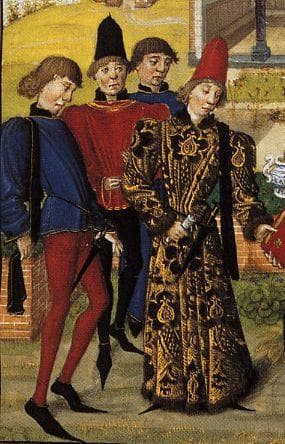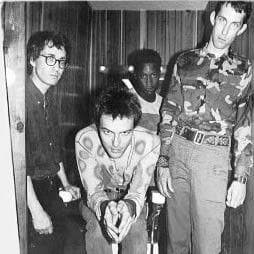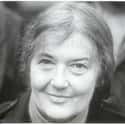-
(#4) Dian Fossey
- Dec. at 53 (1932-1985)
Dian Fossey's life's work was studying gorillas in their native habitat in the forests of Rwanda, which is dangerous on so many levels. While primates can be aggressive, the animals didn't actually pose a threat to the to the primatologist and antrhopologist who had been studying gorillas for 18 years - it was humans who were the true danger to her and her work.
In 1985, Fossey was found murdered in her cabin in Virunga Mountains, Rwanda. In spite of an investigation, Rwanda courts came to the conclusion that Wayne McGuire, her research assistant, killed Fossey and they tried him in absentia. McGuire had already gone home to the United States by the time the trial, which was dubious at best, had occurred. Since there's no extradition policy between America and Rwanda, McGuire has served no time for the murder. Most people doubt McGuire's guilt and believe that poachers, who frequently interrupted Fossey's research, were truly responsible for her murder.
-
(#6) Karen Wetterhahn
- Dec. at 49 (1948-1997)
Karen Wetterhahn was a professor of chemistry at Dartmouth College, NH, who was studying toxic metal exposure, specifically the way mercury ions interact with DNA repair proteins. Wetterhahn was fully aware of the toxicity of the chemicals she was studying, but believed that she was taking all of the necessary precautions to ensure a safe testing area. Prior to her death, Wetterhahn recalled spilling a drop or two of dimethylmercury on her gloved hand, which later tests show would have penetrated the glove and started entering her skin within 15 seconds. Three months after the encounter Wetterhahn began showing signs of intense mercury poisoning, and two months after that she was admitted to the hospital where it was discovered that the single exposure to dimethylmercury had raised her blood mercury level to 4,000 micrograms per liter, or 80 times the toxic threshold. She died less than a year after her single exposure to the toxic chemical.
-
(#13) Jean-François Pilâtre de Rozier
- Dec. at 31 (1754-1785)
This 16th-century chemistry and physics professor led a charmed life where he made friends with Monsieur, the comte de Provence, brother of King Louis XVI, and was put in charge of Monsieur's cabinet of natural history. After seeing the first public demonstration of a balloon by the Montgolfier brothers in 1783. Jean-François became inspired and decided to invent a hybrid hydrogen-and-hot-air balloon in order to float across the English Channel. Sounds good, right? Wrong. In mid-flight, François's balloon suddenly deflated and crashed near Wimereux in the Pas-de-Calais, from an estimated height of 1,500 feet.
-
(#10) Jack Parsons Made Rockets and May Have Blown Himself Up
Jack Parsons was probably one of the coolest scientists that ever walked the face of the Earth. Not only was he literally a rocket scientist, but he also helped create special effects in films, and he was a follower of Aleister Crowley, who hung out with L. Ron Hubbard. Parsons was uneducated, but when it came to making rockets he was described as having "an uninhibited and fruitful imagination" and kept his partners, "focused toward building actual rocket engines, not just solving equations on paper."
Unfortunately, Parsons was all over the place politically and wary about working for the US government (which he never technically did). He kicked around Mexico for a while (where he established an explosives factory for the Mexican government), was investigated by the FBI, and then in 1952 while working on a rush order for some explosives on a movie set, he accidentally blew himself up. Some people speculate that it was suicide, others believe that he was actually murdered by Howard Hughes, but the good money rests on the fact that he was probably high as a kite while he was making explosives.
-
(#8) Harold Maxwell-Lefroy
- Dec. at 48 (1877-1925)
Lefroy was an entomologist who came to fruition in the early 20th century as a guy who knew how to get rid of bugs. He was basically the inventor of the first version of Raid. He spent a lot of time in India studying their bugs, and was appointed as the first Imperial Entomologist - which is cool but also kind of awful. In the early 1920s he made it back to England where he was tasked with taking care of a beetle infestation that had taken over Westminster Hall, beside England's Houses of Parliament. That's when he started figuring out which chemicals killed bugs in spectacular fashions. Unfortunately, his success was short lived because he accidentally killed himself while working in his lab when he breathed in a lethal amount of Lewisite.
-
(#14) Malcolm Casadaban
- Dec. at 60 (1949-2009)
After receiving degrees at MIT and Harvard University, Malcolm Casadaban quickly became an associate professor of Molecular Genetics and Cell Biology and of Microbiology at the University of Chicago. There, he studied bacteria and various forms of microbes. Unfortunately, in 2009, he was exposed to an attenuated strain of Yersinia pestis, a bacterium that causes the plague and due to his undiagnosed iron overload, it's believed that Casadaban's body succumbed to the illness faster than it would have had he not been ill.
New Random Displays Display All By Ranking
About This Tool
In the history of human civilization, many genius scientists have played an extremely important role who have promoted the progress of human science and technology. But at the same time, many great scientists have made huge sacrifices for the advancement of human science and sacrificed their precious lives in scientific experiments. There is no doubt that their death is regrettable to the entire country and even the world.
The random tool introduced 14 of the greatest scientists in human history who we should remember, they made outstanding contributions to science, and their efforts paved the way for major discoveries and important inventions in later generations.
Our data comes from Ranker, If you want to participate in the ranking of items displayed on this page, please click here.
















